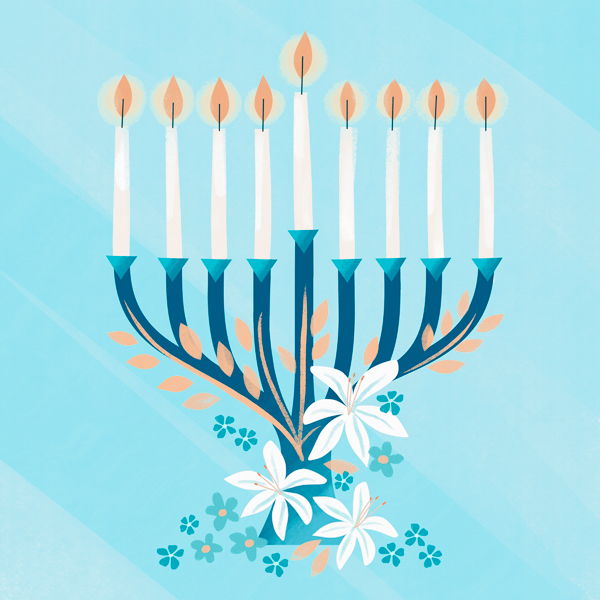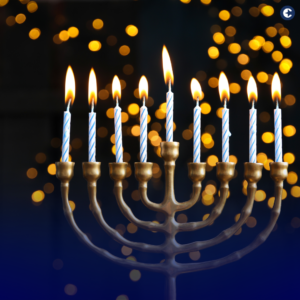Have you ever wondered what is the Festival of Dedication and why is it celebrated? Also known as Hanukkah, this Jewish festival holds significant cultural and historical importance. The Festival of Dedication commemorates the rededication of the Holy Temple in Jerusalem after the Maccabean Revolt. Lasting for eight days, this festive occasion is marked by the lighting of the menorah, traditional foods like latkes and sufganiyot, and the exchange of gifts.

Join us on a journey to uncover the rich traditions and symbolic meanings behind the Festival of Dedication. Discover the spiritual significance, customs, and rituals that make this celebration a cherished part of Jewish heritage.
Then came the Festival of Dedication at Jerusalem. It was winter, and Jesus was in the temple courts walking in Solomon’s Colonnade.
John 10:22-23 pic.twitter.com/LSZAlUrDhI
— Scott Walker (@ScottWalker) December 10, 2020
Introduction to the Festival of Dedication
The Festival of Dedication, also known as Hanukkah or Chanukah, is a Jewish holiday that commemorates the rededication of the Second Temple in Jerusalem during the Maccabean Revolt against the Seleucid Empire in the 2nd century BCE. This eight-day festival is celebrated with the lighting of the menorah, special prayers, delicious foods, and the exchange of gifts.
Historical Significance of the Festival
The Festival of Dedication holds immense historical significance for the Jewish community. It symbolizes the victory of the Maccabees over their oppressors and the miracle of the oil that burned for eight days when it was only supposed to last for one day.
Celebratory Traditions
During the Festival of Dedication, families light the menorah each night, adding one candle until all eight are lit on the final night. Special prayers and songs are recited, traditional foods like potato latkes and sufganiyot are enjoyed, and gifts are exchanged among loved ones.

Historical Significance of the Festival
The Festival of Dedication, also known as Hanukkah, holds a significant historical importance that dates back to the 2nd century BC. It commemorates the victory of the Maccabees, a group of Jewish rebels, over the oppressive Seleucid Empire in restoring religious freedom in Jerusalem. The festival signifies the rededication of the Second Temple in Jerusalem and the miracle of the oil that burned for eight days when there was only enough oil for one.
Origins of the Festival
The Festival of Dedication has its origins in the rebellion led by Judah Maccabee against Antiochus IV Epiphanes, the Seleucid king who outlawed Judaism and desecrated the Temple. The Maccabees’ triumph and the subsequent cleansing and rededication of the Temple are central to the festival’s historical significance.
The celebration of Hanukkah represents the resilience and perseverance of the Jewish people in the face of religious persecution and cultural assimilation.
Cultural Traditions and Practices
The festival is observed by lighting the menorah, a special nine-branched candelabrum, over eight nights, adding one candle each night to commemorate the miracle of the oil. Families gather to exchange gifts, play traditional games like dreidel, and enjoy festive foods like latkes and sufganiyot.
- Lighting the Menorah: Each night, a new candle is lit until all eight candles, plus the shamash, are glowing brightly.
- Playing Dreidel: A four-sided spinning top game often played with chocolate coins called gelt.
- Traditional Foods: Latkes (potato pancakes) and sufganiyot (jelly-filled donuts) are enjoyed during the festival.
Traditions and Customs Associated with the Festival
The Festival of Dedication, also known as the Festival of Lights or Hanukkah, is a joyous Jewish holiday that commemorates the rededication of the Holy Temple in Jerusalem. This eight-day festival involves various traditions and customs that hold significant cultural and religious importance.
The Lighting of the Menorah
One of the central customs of Hanukkah is the lighting of the menorah. Each night, one additional candle is lit on the menorah, representing the miracle of the oil that burned for eight days in the temple.
Marking each night with the menorah lighting is a symbolic reminder of the triumph of light over darkness.
Playing Dreidel Game
Another beloved tradition during Hanukkah is playing the dreidel game. Participants spin a four-sided spinning top called a dreidel, which has Hebrew letters on each side.
- The game involves players betting with coins or candy, adding a playful element to the holiday celebrations.
- Winning or losing in the dreidel game adds an extra layer of excitement to the festivities.

Celebrations and Festivities During the Festival
During the Festival of Dedication, a joyous atmosphere fills the air as communities come together to celebrate this significant event. The festival period is marked with various ceremonies, rituals, and festivities that hold deep cultural and traditional meanings.
Candle Lighting Ceremony
One of the central elements of the Festival of Dedication is the candle lighting ceremony. Families gather each night to light a candle on the menorah, symbolizing the miraculous event that the festival commemorates.
This tradition not only signifies the historical significance of the festival but also promotes unity and togetherness among family members and the community at large.
Traditional Meals and Treats
Another highlight of the festival is the indulgence in traditional meals and treats. Families prepare special dishes such as latkes and sufganiyot, which are enjoyed during this festive time.
These culinary delights not only add to the celebratory spirit but also hold a symbolic value, representing the historical and cultural aspects of the festival.
Spiritual and Cultural Importance of the Festival
The Festival of Dedication holds significant spiritual and cultural importance, especially for those celebrating it.
Historical Roots and Significance
The festival traces its roots back to ancient times, symbolizing the rededication of the Holy Temple in Jerusalem. It commemorates the miracle of the oil that burned for eight days, a testament to divine presence and protection.
Celebratory Rituals and Customs
During the festival, individuals engage in special prayers, light candles on the menorah, indulge in traditional foods such as latkes and sufganiyot, and exchange gifts with loved ones. These customs foster a sense of community and reinforce cultural identity.
Frequently Asked Questions
- What is the Festival of Dedication?
- The Festival of Dedication, also known as Hanukkah, is a Jewish holiday commemorating the rededication of the Second Temple in Jerusalem.
- How long does the Festival of Dedication last?
- The Festival of Dedication typically lasts for eight days, starting on the 25th day of Kislev in the Hebrew calendar.
- What are some common traditions associated with the Festival of Dedication?
- Common traditions of Hanukkah include lighting the menorah, eating fried foods like latkes and sufganiyot, playing dreidel, and giving and receiving gifts.
- What is the significance of lighting the menorah during Hanukkah?
- The lighting of the menorah symbolizes the miracle of the oil that lasted for eight days when it should have only lasted for one day, as recounted in the Hanukkah story.
- Are there any specific prayers or blessings said during Hanukkah?
- Yes, there are specific prayers and blessings said during Hanukkah, including the blessings said while lighting the menorah and the Hallel prayer of praise.
Unveiling the Meaning Behind the Festival of Dedication
In summary, the Festival of Dedication, also known as Hanukkah, holds great cultural and historical significance. It symbolizes the triumph of light over darkness, perseverance, and faith. The lighting of the menorah for eight nights serves as a reminder of the miracle that occurred in ancient times. Through the traditions of menorah lighting, delicious foods, and festive gatherings, this festival brings people together in celebration and unity. Understanding the roots and customs of this holiday sheds light on its deeper meaning and connects us to our shared heritage. May the spirit of Hanukkah continue to inspire hope and joy for generations to come.